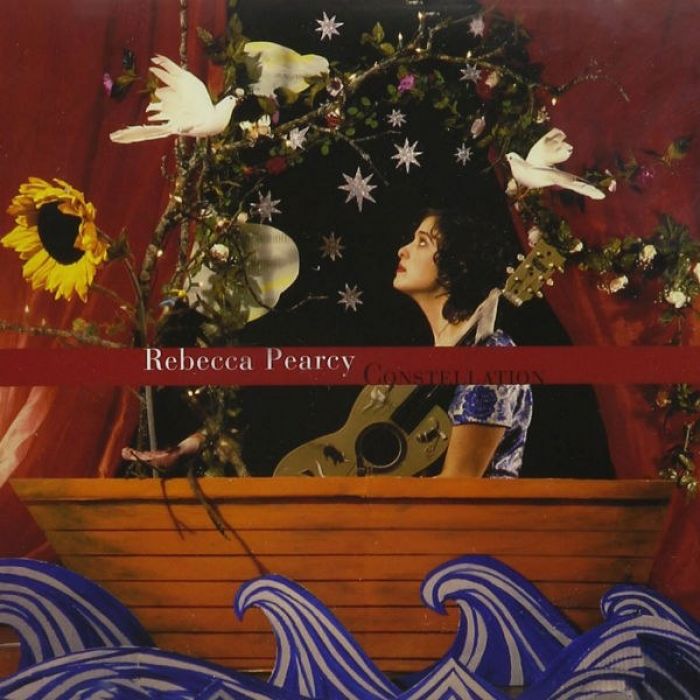Constellation by Rebecca Pearcy (Review)

Despite the fact that Constellation came out in 2002, I can’t shake the feeling that there’s something rather “old timey” about the whole thing. It could be this post-O Brother Where Art Thou? world we live in, where any music with the barest hints of folksy Americana gets mentioned in the same breath as the Carter Family and the Blue Sky Boys. While Rebecca Pearcy’s music is far more contemporary than that, there’s still a hint of Appalachia and wax cylinders, of down home goodness that makes her music a refreshingly natural listen.
Perhaps the best way to describe Constellation would be “nice,” and I mean that in the absolute nicest sense possible. Pearcy is completely unassuming, with her rich vocals perfectly entwining with the album’s largely acoustic-driven pop. Although her songs are not as effusive as, say, Over the Rhine, Pearcy still taps into the same vein. These are songs that long for a rescue from the hectic city life, to head off together to that small acreage at the end of the tree-covered lane where life becomes quieter and simpler.
Pearcy says as much on “One by One,” where her soft vocals make lyrics like “I’ll be sitting at home/In the kitchen by the window/With a blackberry pie in my lap/For you and I to eat with our nervous fingers” sound like the most appealing thing in the world. Add to it a rolling piano and aching steel guitar, and it’s hard to resist packing up and leaving the big city.
That’s doubly so for “Seems a Shame,” a song that drips with longing. When she sings “Come and sit down here beside me/The grass is so green/All the trees are full of blooming,” the chorus becomes painfully obvious; “Seems a shame/That I’ve got this view all to myself.”
Thankfully, Pearcy’s old home goodness never becomes trite or sappy. Part of that is because she’s just a dang good songwriter. Constellation has breezy, airy numbers (“Winter Dry”) followed by haunting ballads like “This Bird Insists” or “Halloween” (imagine Amy Annelle minus the field recordings and tape loops, though just as lovely).
Another part stems from the simple fact that nearly any lyric would be imbued with depth and warmth if delivered by Pearcy’s voice. She possesses the same ability as Over the Rhine’s Karin Bergquist or Rosie Thomas; her voice is smooth as molasses but capable of possessing a slight catch at just the right time that hits you right there.
Finally, the album’s instrumentation weaves it all together. Acoustic guitar is the dominant instrument, as it should be. But seven other musicians weave in their distinctive sounds quite nicely, be it Nora Danielson’s violin echoing Pearcy’s layered voices on “Hook, Line & Sinker” or Kevin Suggs’ pedal steel, which, as far as I’m concerned, could drench every song on here with its wistful tones.
Pearcy’s music appeals to me for the same reason that artists like Denison Witmer and the aforementioned Over the Rhine and Rosie Thomas do. Pearcy’s music looks towards quieter times, when the only noise comes from a babbling brook, the wind through the trees, a battered acoustic guitar, and a lovely voice beckoning you to sit down “underneath the black walnut tree/On a blanket just big enough for you an me.”